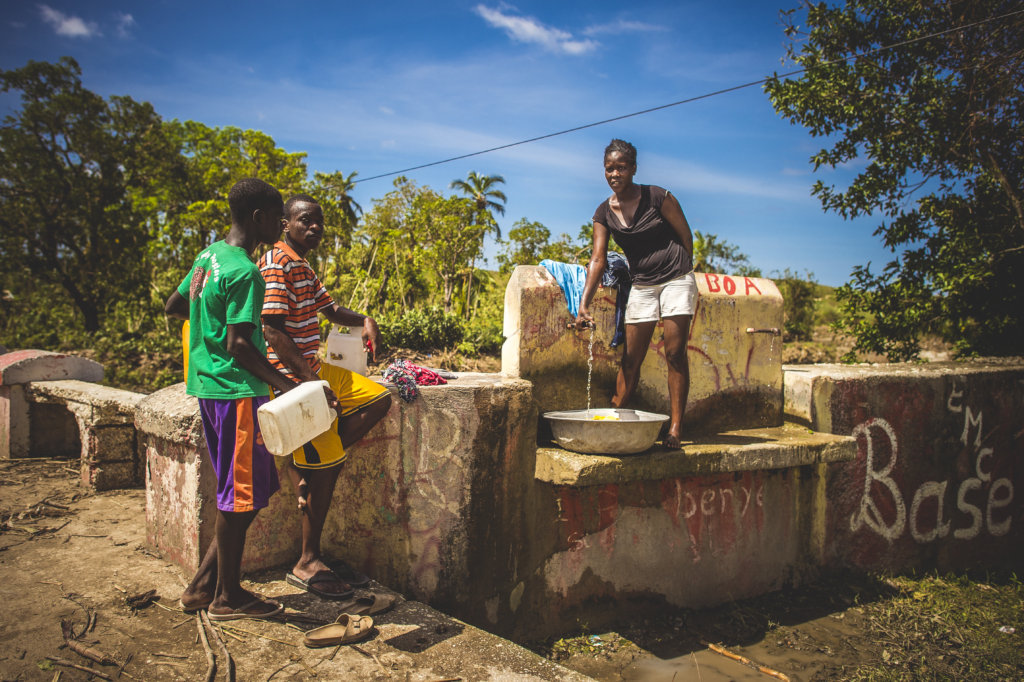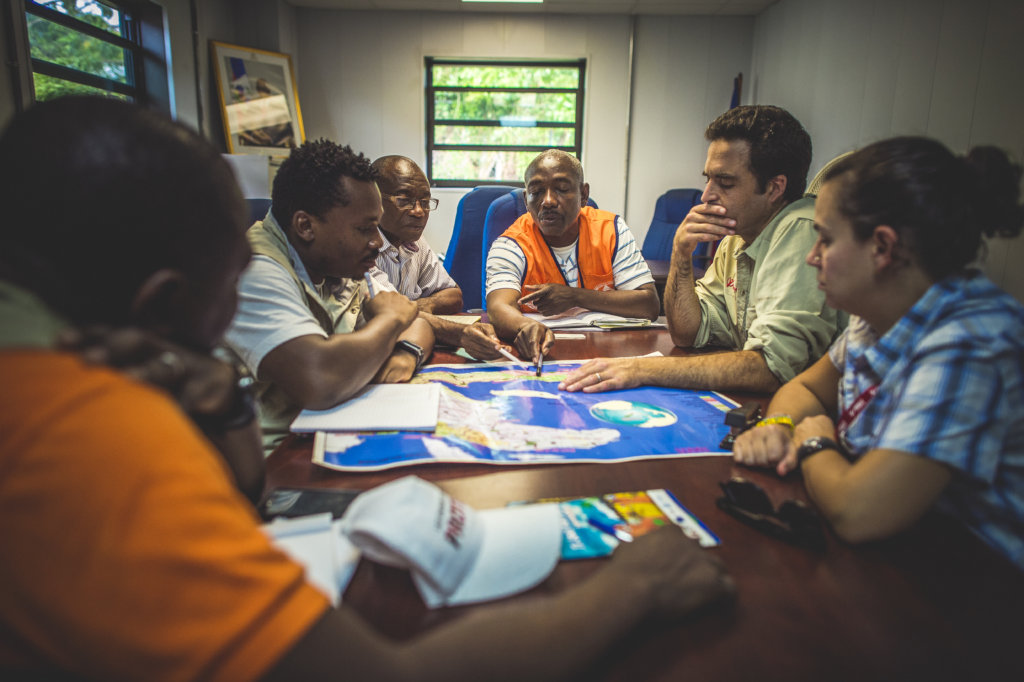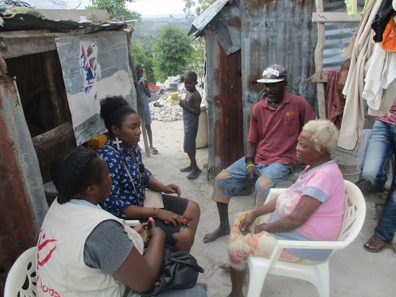By Lyndi Liersemann | Corporate Engagement Officer
All photos: Sean Sheridan for Mercy Corps
The Haiti context
Haiti remains one of the western hemisphere’s poorest countries. Ranked amongst the most affected by natural disasters, Haiti regularly deals with devastating floods, droughts and hurricanes. In addition, Haiti’s political situation is fragile and uncertain, causing currency devaluation and inflation.
In the face of these daily challenges, Hurricane Matthew struck the country on October 4, 2016 with 145-mile-per-hour winds and heavy rain. The storm destroyed roads, infrastructure, properties and crops, leaving over 15,000 people displaced and over 750,000 people in need of urgent humanitarian aid. Haiti’s farmers were particularly hard-hit – many were still recovering from the devastating earthquake in 2010 and had not yet built in safeguards to protect them from the next disaster.
Supporters like you gave through GlobalGiving immediately and stepped up to make a difference. Thanks to their generosity, people in Haiti are rebuilding and recovering from the storm that took lives, homes, and belongings.
A quick pivot to emergency response
Mercy Corps’ global mission is to empower people to survive through crisis, build better lives and transform their communities for good. In response to the January 2010 earthquake, Mercy Corps opened operations in Haiti to help meet urgent needs, and today we still have 32 team members living and working on the ground to help vulnerable Haitians increase incomes through vocational training and entrepreneurship, access savings and loans, promote conservation farming techniques to increase profits and build food security, and promote clean energy technologies and land conservation to rehabilitate degraded land, maintain fertile soil and reduce damage from recurring natural disasters.
As soon as the hurricane passed, our staff began assessing damaged areas and the impact on local communities. These assessments showed that the Carrefour-Feuilles and Canaan areas in the greater Port-au-Prince area, where Mercy Corps has established programming, were not significantly impacted and did not require any emergency response. Mercy Corps resumed its regular programming in these areas, with heavy emphasis in the Arcahaie-Montrouis corridor where agriculture production was severely impacted, with an average of three-quarters of farmers losing 80% or more of their harvest. We are continuing work there as part of our ongoing programs.
In addition to continuing operations in our regular program areas, Mercy Corps proposed providing emergency assistance to the department of Nippes, where there was a significant gap in assistance. In coordination with other organizations, the government, and local actors, Mercy Corps conducted rapid assessments in six communes (equivalent to municipalities) assigned by the local office of the Department of Civil Protection.
The needs assessments indicated that the most urgent needs were clean water, shelter, and food. Once these most basic human needs were met, the focus moved to restoring crops and livelihoods, particularly as the lean season approached and families were left without a harvest or means to purchase seeds. In coordination with the local government, Mercy Corps made the decision to focus on access to water, shelter and income.
Access to Water
Since October, Mercy Corps has reached more than 30,000 people with clean drinking water, hygiene kits and cholera prevention measures. Highlights include:
Shelter
Immediately after the storm, Mercy Corps distributed emergency shelter kits and today we are providing materials and training to help families rebuild their homes and generate income. Highlights include:
Restoring Livelihoods and Food Security
Mercy Corps has been working in the mountains above Arcahaie, about one-hour north of Port-au-Prince, since 2011. Approximately 60% of the farmers there lost between 60-80% of their crops, and there was near complete loss of livestock (mostly goats and chickens). Mercy Corps and our local partners spent a great deal of time and thought on how to respond to these extraordinary circumstances without undermining six years of development work and self-reliance with the nearly 3,000 farmer members. Our thoughtful and collaborative approach included:
Thank you
Your support is helping Mercy Corps reach families and communities in Haiti with emergency food, shelter, and clean water, and helping people rebuild with cash transfers, working markets, and stable and resilient communities. Thank you for your incredible support in the wake of Hurricane Matthew’s destructive path – through GlobalGiving, Haitians are rebuilding homes, recovering land, and finding a way forward.
How you can help
Links:
Project reports on GlobalGiving are posted directly to globalgiving.org by Project Leaders as they are completed, generally every 3-4 months. To protect the integrity of these documents, GlobalGiving does not alter them; therefore you may find some language or formatting issues.
If you donate to this project or have donated to this project, you can recieve an email when this project posts a report. You can also subscribe for reports without donating.


